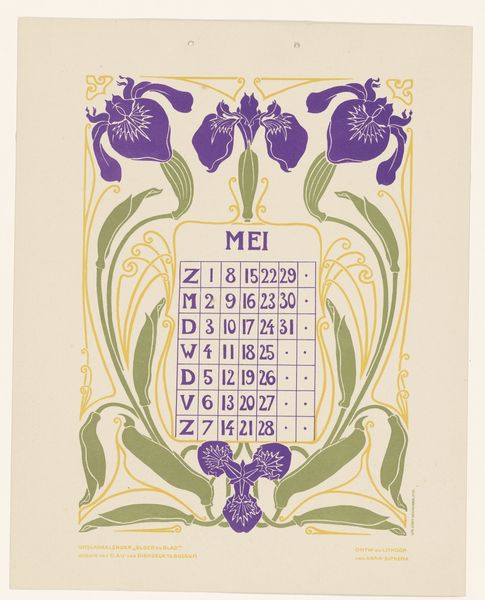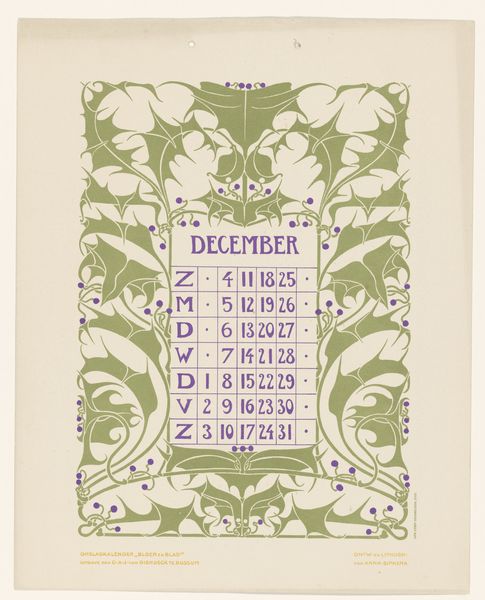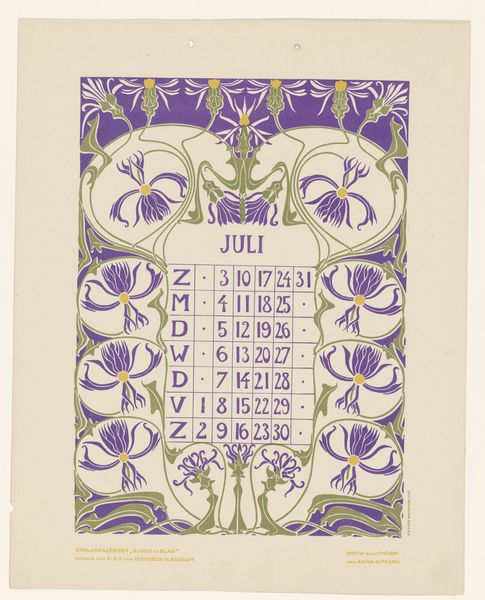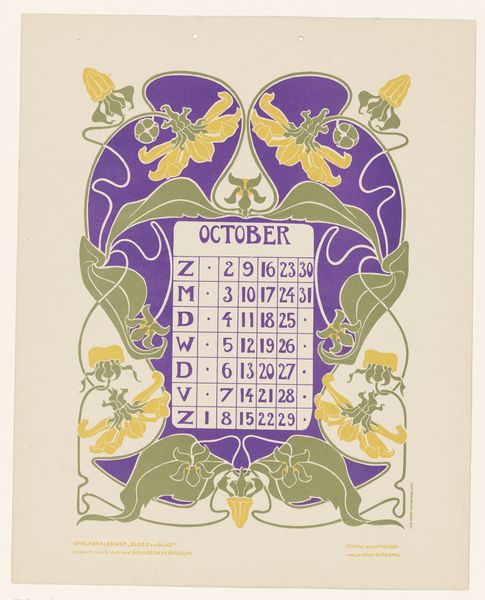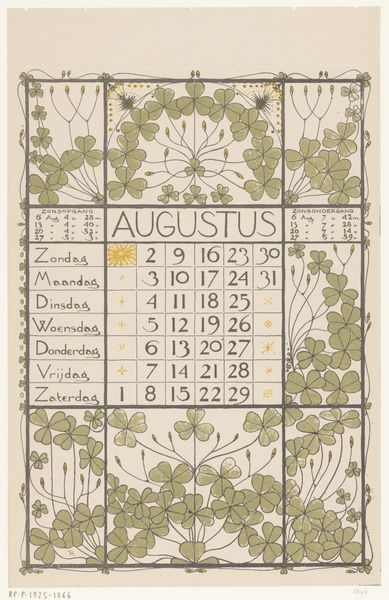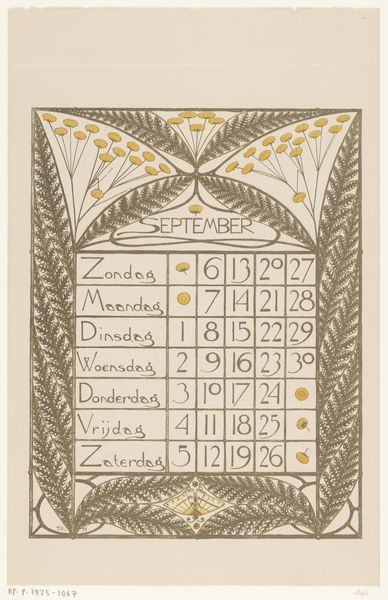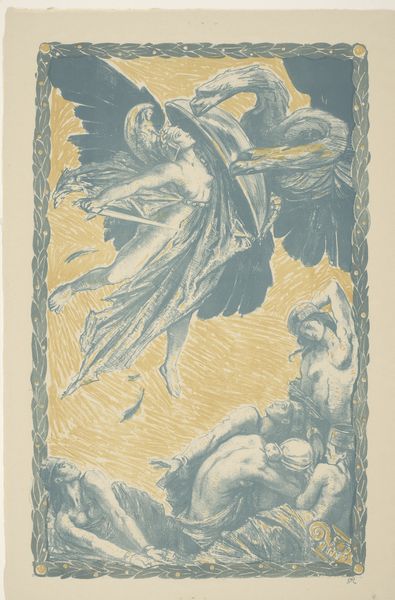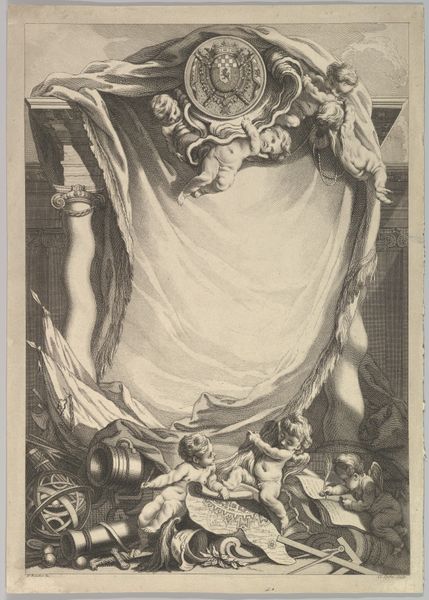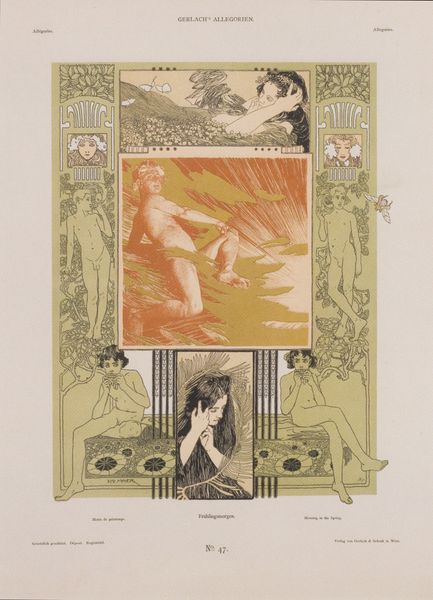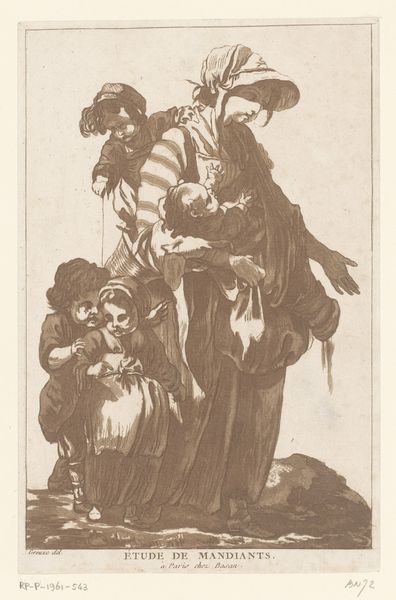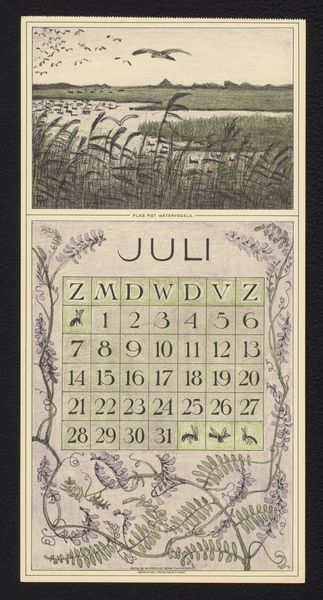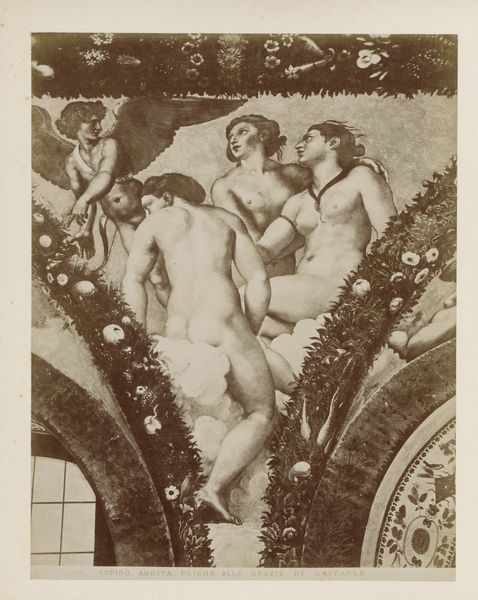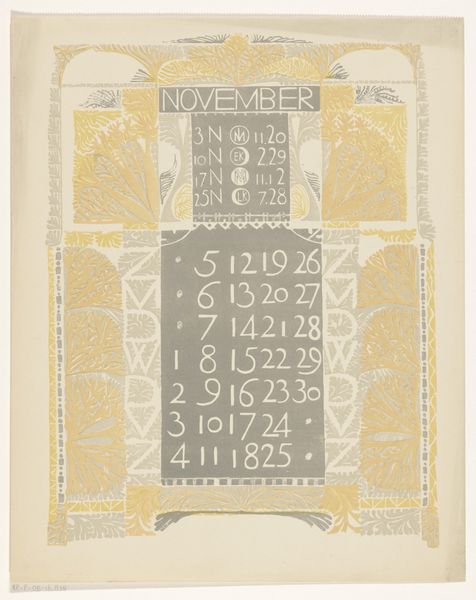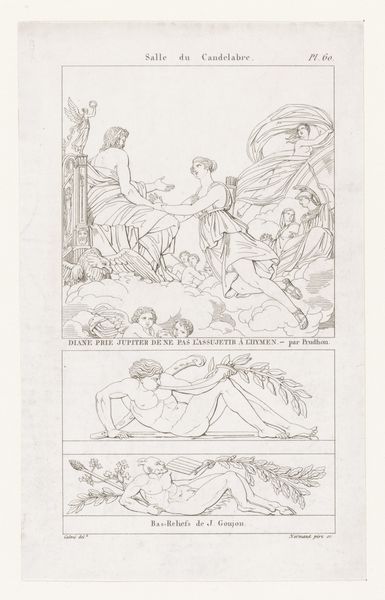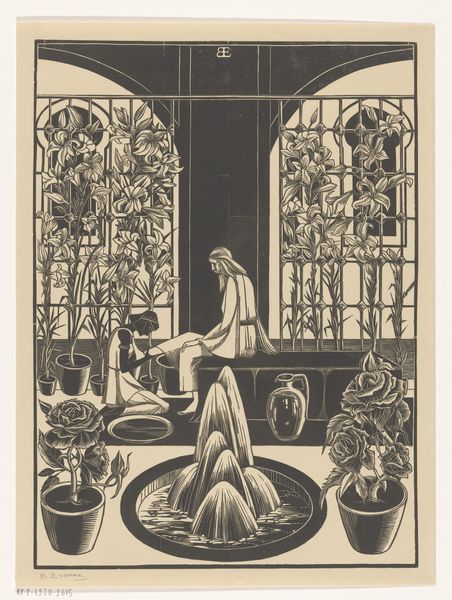
Dimensions: height 970 mm, width 505 mm
Copyright: Rijks Museum: Open Domain
This poster calendar for 1899, likely a lithograph, presents us with a muted palette of purples and grays, giving the piece a very specific, turn-of-the-century kind of feel. It's so interesting how choices about process impact our sense of time and place. I'm drawn to the flat, decorative quality. It reminds me of those moments when you're trying to make an image, and you realize the power of simplification. The artist uses line and shape to create a mood, rather than striving for realism. Look how the woman almost blends into the foliage behind her; she’s becoming part of the pattern. It’s like she is both there and not there, she’s present and absent, and she seems to be looking at another artwork... This piece makes me think of the Nabis painters like Pierre Bonnard, who were interested in flattening the picture plane and using color to create atmosphere. Art, after all, is an ongoing conversation, and this calendar is a beautiful echo from the past.
Comments
No comments
Be the first to comment and join the conversation on the ultimate creative platform.
